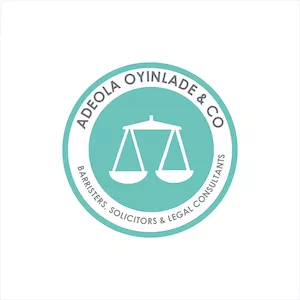- within Employment and HR, Insurance and Energy and Natural Resources topic(s)
- with readers working within the Law Firm industries
Introduction
Telecommunication licenses are indispensable for any entity wishing to provide communication services in Nigeria. The NCC is responsible for issuing these licenses, ensuring that operators comply with legal and regulatory standards. The licensing framework is designed to promote fair competition, protect consumers, and enhance the quality of telecommunication services. This article summaries the procedure and requirements for obtaining a telecommunication license in Nigeria.
Meaning of Telecommunication License
A telecommunication license is a legal authorisation granted by the Nigerian Communications Commission (NCC) that permits individuals or companies to operate telecommunication services within Nigeria. The license is governed by the Nigerian Communications Act of 2003, which establishes the NCC as the regulatory authority responsible for overseeing the communications sector.
There are various types of licenses, including:
- Individual License: This is a type of approval in which the terms, conditions and obligations, scope and limitations are specific to the service being provided. The process of licensing can take the form of auctions, tenders, fixed prices or a standard administrative procedure, etc.
- Class License: This is a type of general approval in which the terms and conditions/obligations are common to all license holders. It requires only registration with the Commission for applicants to commence operation.
- Unified License: Allows the provision of multiple telecommunication services under one license.
- Value Added Service License: Permits the provision of additional services such as internet and content services, often relying on existing network infrastructure.
Importance of Telecommunication License
- Legal Compliance: Operating without a license is illegal and may result in significant fines and penalties. The NCC requires that all telecommunication services be licensed to ensure adherence with national regulations.
- Consumer Protection: Licensing helps safeguard consumer interests by ensuring that service providers meet certain standards and obligations, thereby enhancing service quality and reliability.
- Market Regulation: Licenses enable the NCC to regulate the telecommunication market effectively, ensuring fair competition and preventing monopolistic practices.
- Quality Assurance: The licensing process includes assessments of technical capabilities and financial viability, which helps maintain high service standards across the industry.
- Revenue Generation: Licensing fees contribute to the government's revenue, which can be reinvested into the telecommunications infrastructure and other public services.
- Support for Development: By regulating the sector, the NCC can foster growth and innovation in telecommunications, which is crucial for economic development and digital inclusion in Nigeria.
Conditions for obtaining a telecommunication license in Nigeria
To obtain a telecommunication license in Nigeria, applicants must meet several conditions set by the Nigerian Communications Commission (NCC). These conditions ensure that only qualified entities can provide telecommunication services, thereby maintaining industry standards and protecting consumers. These conditions include:
- The applicant must be a corporate body registered under Nigerian law. This includes compliance with the Companies and Allied Matters Act.
- The applicant must meet the NCC's technical requirements for operating the specific service for which the license is sought. This may involve demonstrating technical expertise and infrastructure capability.
- The applicant must possess sufficient financial resources to provide long-term services. This requirement ensures that the entity can sustain operations and meet service obligations.
- For services that depend on specific resources, such as spectrum or numbering, the NCC must confirm the availability of these resources. The applicant must secure a reservation or assignment of such resources before applying.
- The NCC may impose other conditions as deemed necessary for the specific service being provided. This can include compliance with industry regulations and standards.
- Applicants must provide various documents, including incorporation documents, tax clearance certificates, feasibility reports, and evidence of funding.
- Payment of a non-refundable administrative charge, typically 5% of the relevant license fee, is required upon submission of the application.
Application Process
To obtain a telecommunication license in Nigeria, the following procedure and requirements must be met:
Requirements for Individual License
- Sign up on eservices.ncc.gov.ng and click on Licensing Application Management System to apply.
- Fill the form and upload the relevant documents listed below:
- Certificate of Incorporation.
- Tax Clearance Certificate.
- Certified True Copy (CTC) of Articles & Memorandum of Association.
- Feasibility report of proposed service.
- Soft Copy of Passport photographs of authorized representative.
- Certificates of qualified technical staff (where applicable).
- Certified True Copy (CTC) of Form CO7 (List of Company Directors).
- Soft Copy of Passport photographs of Directors of the company.
- Certified True Copy (CTC) of Company's Registered Address.
- Utility bill of the official address of the Company.
- Evidence of funding for the project.
- The amount budgeted for the project i.e. estimated funding for the deployment of the proposed service.
- Applications should be submitted when all documents above have been uploaded.
- On submission of the application, a non-refundable administrative charge, which is 5% of the relevant license fee would be paid via the Licensing Application Management System.
- License fee is payable on approval of application.
- All Automated Vehicle Tracking Service (AVTS) applicants henceforth must obtain a security clearance from the State Security Service (SSS) for the proposed service before applying for the license, as a condition precedent for the grant of license by the Commission. The Personal History Statement Form (PHS) for the company and its Directors will be provided by the Commission for completion by applicants.
- All VAS (Content Service using Short Code) applicant (s) must present:
- Evidence of an Agreement or a Memorandum of Understanding (MOU) entered between the company and any of the VAS Aggregators.
- Alternatively, the company should provide a copy of License duly issued to it by the Central Bank of Nigeria (CBN) for Mobile Money Services or from the National Lottery Regulatory Commission (NLRC) for lottery services.
Requirements for Class License
- Sign up on eservices.ncc.gov.ng and click on Licensing Application Management System to apply.
- Fill the form and upload the relevant documents listed below:
- Certificate of Incorporation or Registered Business Name.
- Tax Clearance Certificate.
- Certified true copy of Articles & Memorandum of Association to include telecommunication as an object clause that allows the Company to provide telecommunication service in Nigeria
- CAC Status Report
- Soft Copy of Passport photographs of authorized representative.
- Certificate of qualified technical staff
- Details of proposed service
- Soft Copy of Passport photographs of Directors of the Company/Sole Proprietorship.
- Applications should be submitted when all documents above have been uploaded.
- On submission of the application, a License fee of Ten Thousand Naira (₦10,000.00) only, is payable via the Licensing Application Management System.
Additional License & Renewal Application Requirements
Existing licensees wishing to apply for additional license(s) or renew their current licenses must be up to date on their existing licensing obligations. These obligations include but are not limited to the following:
- Payment of Annual Operating Levy (AOL): the company is required to submit Audited Accounts (Management Accounts are to be submitted if Audited Accounts are not yet available) for assessment of the AOL payable to the Commission. Note that Non-Operational Licensees are also required to pay AOL.
- Submission of Year End Questionnaire/Information
- Submission of Individual Consumer Code of Practice
- Type approval of equipment in use on network
- Payment of Spectrum and National Numbering Plan (NNP) fees (where applicable)
- Obtaining prior approval from the Commission before change in shareholdings above 10%.
- Notification on change of address, business name etc.
- Obtaining approval before license transfer
- Requirement to roll-out service / commence operation etc.
- Submission of Annual Ownership Report not later than 31st March every year (Corporate Affairs Documents).
- Current Tax Clearance Certificate
- Licensees seeking renewal must make their applications at least six (6) months before expiration.
Conclusion
Obtaining a telecommunication license in Nigeria involves a detailed process with specific requirements that must be met to ensure compliance with regulatory standards set by the Nigerian Communications Commission. Failure to obtain a valid license can result in substantial penalties, stressing the importance of meeting these standards. As a result, potential operators should get competent legal advice to effectively handle the licensing procedure.
The content of this article is intended to provide a general guide to the subject matter. Specialist advice should be sought about your specific circumstances.


